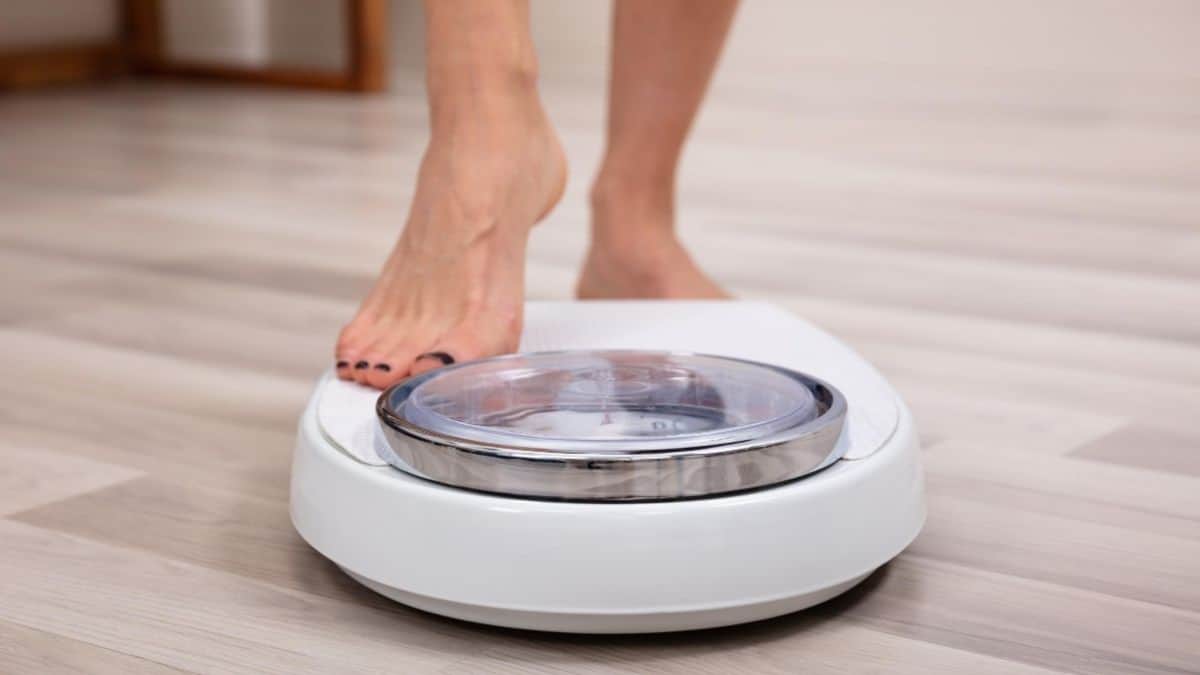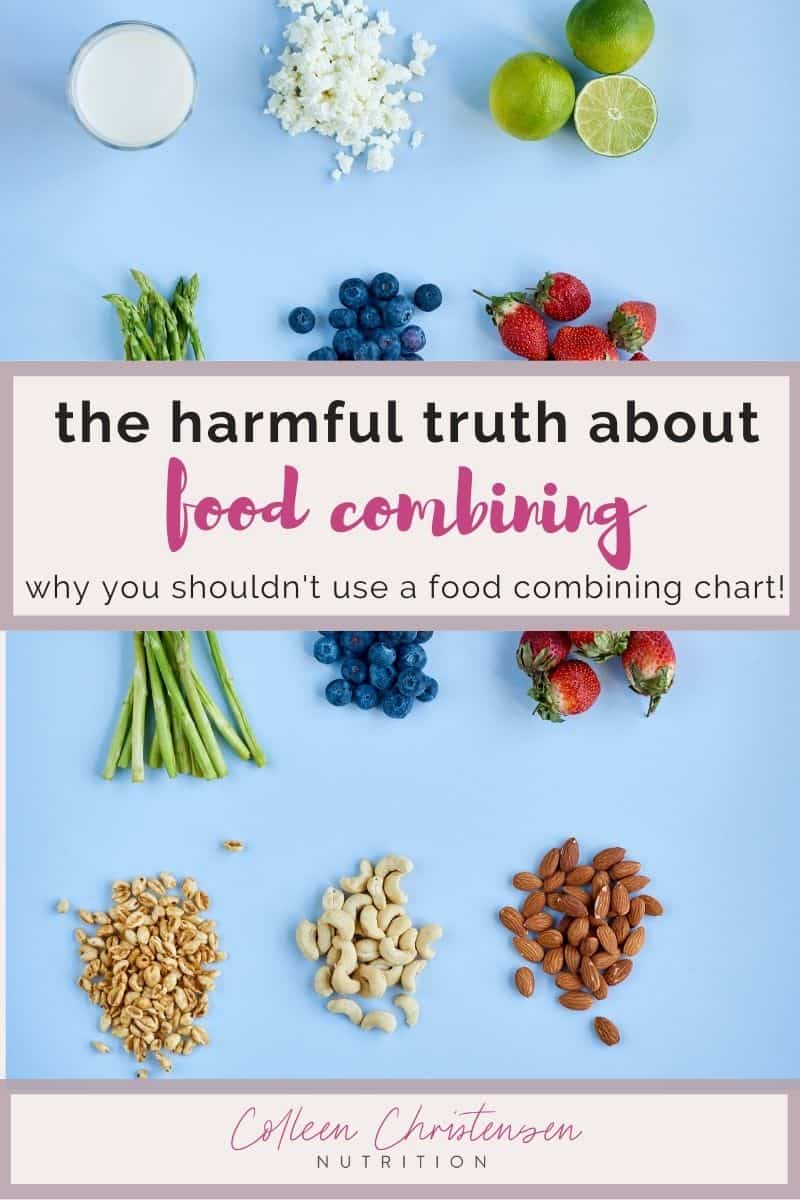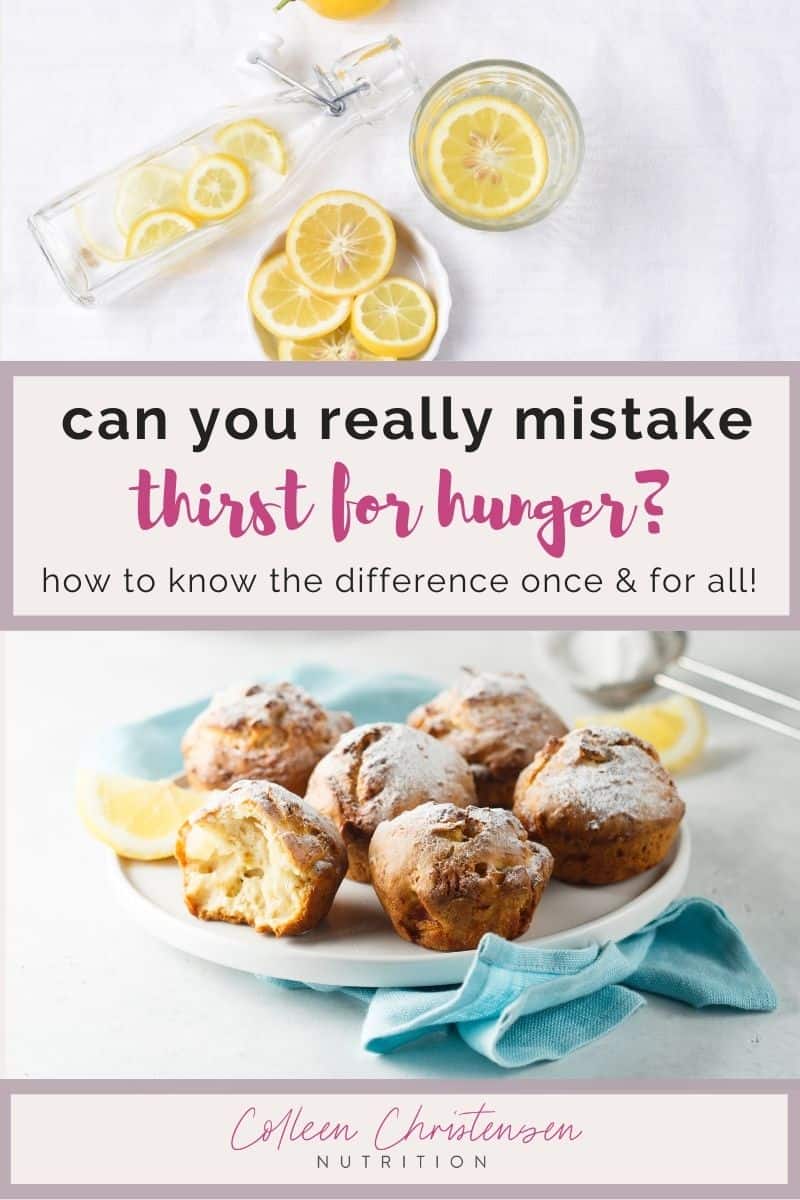Intermittent fasting is one of the hottest diet trends that has tons of health claims attached to it. But, is this diet trend legit? In this blog post we’ll dive into the truth about how “healthy” intermittent fasting really is!

What is Intermittent fasting?
Intermittent fasting is different from other dietary patterns in that it doesn’t say what foods you can and can not eat but rather it says WHEN you can and can not eat. Basically, you get an “eating window” where you’re allowed to eat and then outside of that “window” you have to fast (i.e. refrain from eating food).
There are several different types of intermittent fasting and they’re really quite different, so let’s dive into those real quick.
Types Of Intermittent Fasting
Twice a Week aka 5:2 Method
With this method, you will cap your calories at 500 calories, 2 days a week. So, 5 days of the week you will eat normally, with 2 days (as long as there’s at least 1 day in between them) eating a very small amount of food (500 calories).
Alternate Day Fasting Method
Similar to the twice a week method, on fasting days you will consume 500 calories or less. This continues every other day, with non-fasting days when you eat your regular diet with no restrictions.
Time Restricted Method
With this method, there are eating and fasting windows. Some popular time windows are 16/8, 14/10, or 18/6, where the first number is the number of hours you fast, and the second is the amount of hours you need to eat. This method can be repeated as often as you’d like, or twice per week; whatever your preference.
Eat-Stop-Eat Method
In the Eat-Stop-Eat Method, one completely stops eating for 24 hours for 1 or 2 days a week.
As you can see there is a TON of variety in here. Some go as far to say not eat for days and some are as “casual” as simply having dinner, going to sleep, and then waking up for breakfast (Ummm… do we really need a name for that?!) Keep this in mind when you hear the term “intermittent fasting” being thrown around. It could mean SO many different things!
Proposed Benefits Of Intermittent Fasting

Insulin Sensitivity
The science on intermittent fasting and insulin sensitivity is limited, and has mixed results based on the patient population. These mixed results suggest that there may be differences in the response among groups and that more research is needed.
A review discussing the literature in rodent and human models highlights that though the evidence for rodent models is promising, it is inconclusive in humans. I’ve discussed in my blog post on food obsession and addiction that animal models have limitations when it comes to human recommendations, and intermittents fasting and its proposed effects on insulin sensitivity need more research on human mechanisms to give good healthcare recommendations.
There was one study I found done on men with pre-diabetes which showed an increased insulin sensitivity when they began early time restricted eating (they ate all of their food prior to 3pm). Notice how I said men? We’ll get into why this is in a second…. This study also was only 5 weeks, so pretty short term making it hard to draw conclusions.
Heart Health
There are some heart health related benefits proposed due to intermittent fasting, hypothesized in a more recent review based on current evidence. These benefits include lowering blood pressure and improving cholesterol levels.
These benefits are said to be due to reducing our oxidative stress, enhancing our natural circadian rhythm and the natural benefits we get from sleeping, and as a consequence of not eating during those times, and inducing the ketogenic state.
Cognition/Brain Functioning
In a mouse model, 28 days of intermittent fasting has been shown to improve mitochondria production, and improves microbial metabolites related to cognitive function. As mentioned above, these findings in animals only provide hints at what may be happening in humans. By conducting more research, we can have better insight on how intermittent fasting may delay aging.
Therefor, we can’t really draw set conclusions from this.
Body Stress & Inflammation
A review indicated that intermittent fasting may help with stress on your body and consequent inflammation by reducing the hormone, adiponectin, which is tied to our inflammatory response.
Issues With The Intermittent Fasting Research
I looked into the models of some these studies and here are a couple things to note: only post-menopausal women (so intermittent fasting for women over 40 or 50) were allowed to participate in some studies (we will get into why in the “cons” section) so research has mostly been done on men, in one study the participants must have had a baseline low activity level (activity was added as part of the study… so did THAT impact it?), the subjects were also told what to eat (so was the “benefit” due to the food having more positive things like antioxidants, fiber, etc. or was it the fasting times?)
Another important thing to note is drop out rate of the studies. About 40% of participants dropped out of some of the intermittent fasting studies. My question is: is it really ethical to recommend something that we don’t have legitimate long term studies to prove it’s benefits and has such a high dropout rate when we know that weight cycling (yo-yo dieting) is linked to increased mortality and disease risk?
Potential Harms Of Intermittent Fasting

Overeating
By restricting our eating times we may cause ourselves to overeat and feel even more hungry during fasting windows. With intermittent fasting, a review indicated that a preoccupation with food can occur – and a preoccupation with food can lead you to overeat. See my blog post on food obsession for more details on the neurobiology behind this!
Here is my favorite analogy: imagine you have to swim from one side of a long pool to the other totally underwater. It’s longer than you normally would swim underwater. What would happen when you get to the other side of the pool and come up for air? You’d probably take BIG ol’ breath of air to replenish your empty lungs, right? The same thing tends to happen with food.
When we restrict food and go too long without eating, getting too hungry, when we finally allow ourselves to eat it’s like we’re all “Thanks GOODNESS! Give me the food NOW!”. That big breath of air we talked about earlier becomes overeating in this situation.
This overeating could lead to so many negative health outcomes such as weight cycling and digestive problems from eating large amounts of food.
Fatigue
Another review of intermittent fasting studies lasting longer than 6 months identified that some adverse events that occurred while fasting included feeling cold, headaches, constipation, bad temper, lack of energy, lack of concentration, and a preoccupation with food. These are all things we don’t want nor are they beneficial for our overall health or wellbeing (or those around us for that matter!)
Increased Stress
I mentioned earlier how many of the studies done on intermittent fasting had significant drop out rates. That’s because setting rigorous rules around when to eat is HARD to follow. As a result, that can cause stress and in turn raise cortisol levels. Consistent high cortisol levels can wreak havoc on our health.
Mental Distress/Social Impact
When intermittent fasting, you can miss out on the social interactions around food. Eating is personal, cultural, and it brings people together. When intermittent fasting and controlling your eating windows, you miss out on these experiences. So you really have to ask yourself how you want to live your life.
Women’s Hormones
We have several studies showing that intermittent fasting may negatively impact women’s sex and reproductive hormones. Remember how I previously mentioned how only intermittent fasting for women over 40 or 50 (post-menopausal) were allowed to participate in studies? Yeah, that’s why.
One animal model study showed reduction to female ovary weight as well as increases to estradiol and decreases of luteinizing hormone. Both of these hormone imbalances can negatively impact women’s health. Again, animal models can give us potential hints. So let’s look at a human study.
Negative hormone impacts were also seen in human models where women fasted for 3 consecutive days during the mid-follicular phase. This can cause issues with women’s menstrual cycles and ovulation.
Women’s sex and reproductive hormones are super important for overall health. So if you’re like “Well, Colleen, I don’t want to have kids so I’m fine to intermittent fast!” think again. It’s not that simple.
I have a whole blog post on hormone imbalances and how to balance hormones naturally that has more info on the women’s health side of things so be sure to check that out!
Cause/Enhanced Disordered Eating
No one starts a diet or “lifestyle” trend with the intent of it turning into disordered eating. And, to be fair, this won’t occur for everyone. However, it’s a very real and worrisome possibility.
I cover this more in my blog post on food obsession but we know that the more we set rules and restrictions around food the more we increase our brain’s reward response to those foods. Meaning, if you say you can’t have cookies at 8pm this may lead you to want MORE cookies at 8pm. And pair that with knowing when we restrict food we eat MORE, well. Not great.
This disordered style of eating, restricting and bingeing, creates a cycle that can be very hard to escape. I’m speaking from both professional and personal experience here. Helping others to escape it faster than I did is a huge reason that I created the membership community, The SociEATy.

What About Intermittent Fasting For Weight Loss?
A review found that intermittent fasting was “just as effective” as caloric restriction for weight loss. What does this mean? That when you are restricting and eating less than your needs, you will lose weight. This is not new ‘news’ and intermittent fasting is another form of dieting and the lie that diet culture sells. Intermittent fasting typically “works” for weight loss because of the overall reduction of caloric intake.
Decreased resting energy expenditure (REE) has been seen with some intermittent fasting models. This means your body will burn less overall energy as it goes about the day. Typically this metabolic adaptation occurs when we consume inadequate caloric intake, which may very well happen with intermittent fasting. More studies need to be done on this topic to draw a conclusion. In sum: it could decrease your metabolism.
Another thing to think about here: these are all SHORT term studies. I won’t lie in saying that calorie restriction can lead to weight loss. But what these studies don’t capture is the typical weight regain that is shown. I talk about this more in my blog post on 12 reasons not to diet but essentially: long term weight loss beyond your body’s set point weight is rare. I’d like to see where these study participants were 2-5 years after this study and what negative health impacts they’ve seen.
Bottom line: Intermittent fasting is touted as a way to lose weight, but it’s also a good possibility that it could cause weight gain either in the short term from the binge-like style eating that may develop or the long term weight gain that may occur due to your body dipping too low from it’s set point weight and “packing on” a few extra pounds to prevent it from future starvation (i.e. dieting and dipping too low again- this is how our weight “creeps up”.)

Is Intermittent Fasting Worth It?
Overall, I’m not won over that intermittent fasting’s benefits outweigh the risks. The research that we have on the subject is so small right now with a lot of flaws in the study designs and we don’t have long term data to assess the true results.
I also think that the high drop out rate of the intermittent fasting studies is a BIG red flag. Sustainability of the lifestyle you pursue is so important and I’m just not seeing it here.
And while I do think it’s a very interesting topic and I’m curious where the research will lead I can confidently draw one conclusion right now: If you’ve ever struggled with your relationship with food and body my advice would be to run far, far away from this diet trend.
There is a good chance that in these cases when you attempt to intermittent fast this may lead you further down the dark hole that is disordered eating and into the restrict-binge cycle. To me the proposed “benefits” do NOT outweigh the risks of this.
So what SHOULD you do to improve health?
My advice to anyone who is looking to improve their health is to focus on health promoting behaviors not weight. We know that doing this is what is truly tied to improving mortality and decreasing disease risk.
I’d recommend implementing gentle nutrition (be sure to checkout my blog post on gentle nutrition) and focusing on adding things VS restricting. Come from a place of abundance VS scarcity. For instance, want to improve heart health? Try focusing on consuming whole grains, fruits and veggies and getting physically active.
Instead of setting hard rules of when to stop eating try increasing mindfulness (checkout my favorite mindful eating exercises here!) and body attunement. Work towards understanding your hunger, fullness and satisfaction cues while becoming more aware of things like emotional eating. You might find that by doing this those night time cravings for multiple pints of ice cream, eating way past fullness and satisfaction, subside… no intermittent fasting required! All of this is what I teach in my membership community, The SociEATy!
What are YOUR thoughts on intermittent fasting? Was any of this information surprising? (The resulting reduction in ovary weight was for me!) I’d love for you to leave a comment and let me know!
Other Blog Posts You Might Like:
XOXO
-Colleen
This blog post was written by Colleen Christensen, RD and researched and written with the help of Amy Sharn, MS, RDN, LD.










Kayla says
This post is so informative! I’ve been following you for awhile now and intuitive eating has been the best thing because it’s not a ‘diet’ I tried intermittent fastening last year for 6 months. I did lose 10lb but I had severe fatigue and felt like it wasn’t helping my body. I did 18:6 five days a week and the guilt was horrid on the other 2 days. I’m glad I don’t do that anymore. I’ve had a few friends and coworkers have good experiences but I think it depends on the individual, what time they are eating that reflects their activities, and what they eat that benefits their body.
Colleen says
So glad it was helpful, Kayla!